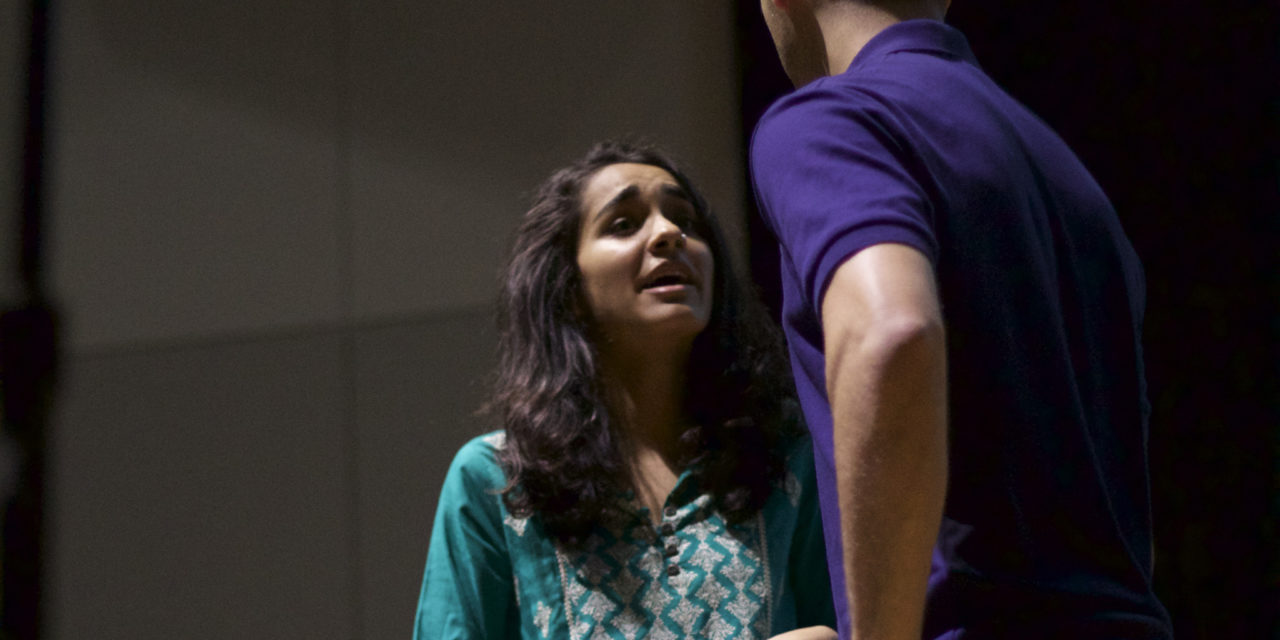The average American can’t fathom the thought of contracting polio as a child, losing a loved one to a preventable ailment or spending the majority of their adolescence in a run-down orphanage. But these aforementioned tragedies are very much a reality for some children in Pakistan and many other parts of the world. On March 19 in White Hall 208 at 6:30 p.m., the Pakistani Student Association (PSA) brought forth these issues with their annual Jhalak, a play that aims to both entertain an audience and give them the opportunity to witness a culture that may not always receive recognition among the student body.
This year’s Jhalak: A Glimpse into Pakistan tells a love story about Amal (College freshman Laila Hasnain), a privileged Pakistani-American girl who was adopted as a child and strives to find her true identity, and Haris (Goizueta Business School junior Shaaz Gillani), a hard-working boy from the same orphanage as Amal who dreams of being an architect. Even with their disparate backgrounds and personalities, Amal and Haris fall in love while pursuing a common goal: making a difference in the orphanage system of rural Pakistan.
The audience was encouraged to wear semi-formal wear or traditional clothing for this event, a precursor that successfully set the scene, making the night more immersive and more professional. The immersiveness of the show was further augmented once the play started. Its use of both staging and multimedia to tell the story through live acting, videos, pictures and social media added a modern vibe to the whole production, which made the audience identify with the play on a personal level. The icing on the cake came after the play ended when the audience was led to a reception filled with delicious Pakistani cuisine. This was a great way for the audience to fully indulge in Pakistani culture first-hand.
The chairs of the event (College senior Manal Zafar, College junior Mashal Mirza and College sophomore Sohrab Nawaz) successfully incorporated both American and Pakistani culture into the play. During transitions, the production crew played a mix of Pakistani music and American pop songs such as Rihanna’s “Work” and Fifth Harmony’s “Worth It.” The audience listened to both the American National Anthem and the Pakistani National Anthem. The dialogue employed American jargon while adding in certain Pakistani phrases of Urdu, the national language of Pakistan. This balance seemed to give the show a sense of relatability for Americans of non-Pakistani heritage while exposing them to a new culture they may not be aware of on a regular basis, ultimately making the whole experience much more welcoming and enjoyable.
Another aspect that made the play so engaging was character development. Each character had his or her own respective dreams, fears, personalities, backstories and little quirks. Both Amal’s father, Faiz (College junior Naveed Noordin), and Haris’ best friend, Ali (Business School sophomore Ravi Doshi), provided a sense of comic relief. Faiz embodied the trope of the immigrant parent who brags about his children’s accomplishments to the point of suffocating them with his expectations, and Ali was the funny friend who could be a slacker sometimes but was, nonetheless, unconditionally supportive of Haris and his pursuits. These characters felt so real, which resonated with me as an audience member. Every hardship the characters faced, from Haris being rejected from the school of his dreams to Amal’s quest to find her birth parents, left us invested in their growth.
The authenticity of the characters was a result of both the writers and the actors. The script was well planned out and entertaining to watch. This wouldn’t have been possible if the actors didn’t immerse themselves into their roles. Gillani fully embraced his role as Haris with passion and zeal. Hasnain successfully displayed the inner turmoil that Amal faced in both finding herself and making a difference for those not as fortunate as she was.
On the other note, although Jhalak was advertised as a love story, it felt more like a story about two distinct people coming together, who just happened to fall in love while accomplishing a common goal. There was less emphasis on their love itself and more focus on the plotline and the personal growth of the characters. Simply, Haris and Amal’s love was a result of the story rather than the story being a result of their love.
Nevertheless, this story worked. The decision to show the separate, distinct lives of Haris and Amal before they met, and before adding in romance, gave them depth independent of each other, which subsequently made them more well-rounded. Their relationship felt authentic, and despite their differences and their adversities, the audience was rooting for them to be together.
Jhalak was interesting, realistic and dealt with both universal issues like love overcoming all and issues specific to Pakistan as a country, such as the persistence of the polio disease. Even though it took a couple minutes to get started, the wait was worth it. “Better late than never” has never been more true. Jhalak is not only a “glimpse” into Pakistani culture; it’s a full-on experience that you wouldn’t want to miss.





